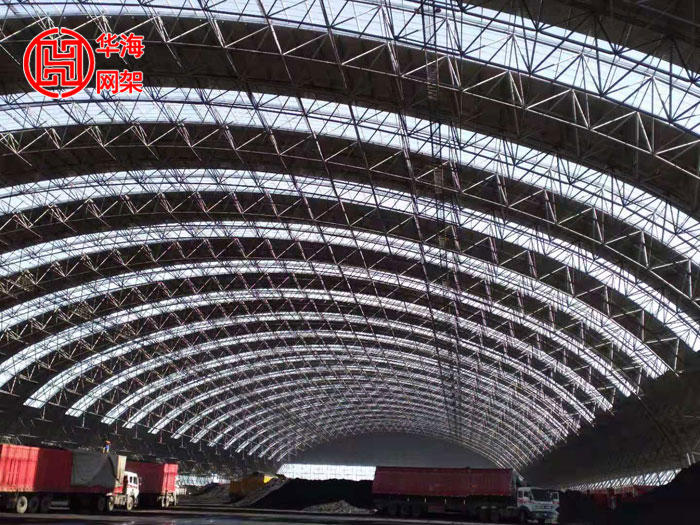Force analysis of grid structure
更新时间:2021-01-26 09:18:48•点击:84007 • Grid Knowledge

The force analysis of the grid structure should be based on the analysis of the reticulated shell structure. The reticulated shell structure is divided by the number of layers. There are mainly single-layer reticulated shells, double-layer reticulated shells and three-layer reticulated shells; according to Gaussian curvature, it is divided into zero-Gaussian curvature reticulated shells, The net shell with positive Gaussian curvature and the net shell with negative Gaussian curvature are divided into cylindrical net shell, spherical net shell, double-sided parabolic net shell and complex curved net shell according to the surface shape.
The force aspect of the grid structure: when the rod is under tension, the force transmission route is tension-steel pipe-cone or sealing plate-bolt-steel ball; at this time, the sleeve is not stressed. When the rod is compressed, its force transmission route is the pressure plate-steel plate-cone or sealing plate-sleeve-steel ball. At this time, the bolt is not stressed, and the pressure is transmitted by the contact surface between the parts. The grid sealing plate and the cone head mainly play the role of connecting steel pipes and bolts, and bear the tension and pressure from the rods. When the pipe diameter of the rod is greater than or equal to 76mm, it is advisable to use the taper connection; when the pipe diameter of the rod is less than 76mm, the sealing plate can be used for connection.
According to the analysis of some grid structures using the mode decomposition reaction popularization method, it is shown that in areas with fortification intensity of 6 degrees or 7 degrees, under the action of vertical earthquakes, the seismic internal forces and displacements of the grid are not significant. To the seismic check. In areas where the seismic fortification intensity is 8 or 9 degrees, the grid structure should be subjected to vertical seismic check and horizontal check.
Recommended Reading
-
Full analysis of seismic design and maintenance of grid structure
2025-02-27 16:16:52•1259440 次
-
What are the key process points to follow in order to ensure the quality of grid processing?
2025-02-27 11:21:00•151839 次
-
What type of construction is the grid mainly suitable for?
2025-02-25 16:42:00•148476 次
-
Quality control requirements of grid manufacturers!
2025-02-25 16:02:44•283688 次






